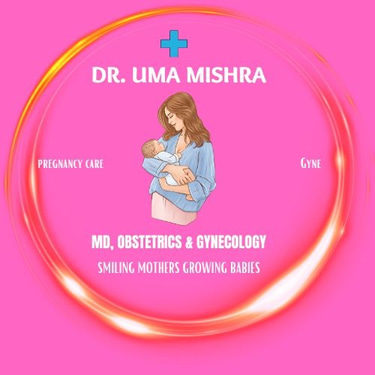Ectopic Pregnancy: Symptoms, Diagnosis, and Treatment Options
Learn about the causes, symptoms, and diagnosis of ectopic pregnancy, a serious condition that occurs when a fertilized egg implants outside the uterus. Discover the treatment options available and how a gynecologist can help with diagnosis and management of this condition.
Dr Uma Mishra
4/10/20232 min read


Ectopic Pregnancy Can be Dangerous:
An ectopic pregnancy occurs when a fertilized egg implants outside the uterus, most commonly in the fallopian tubes, but also sometimes in the ovary or other parts of the abdomen. This is a serious condition that requires medical attention, as it can lead to life-threatening complications if left untreated.
Ectopic pregnancies occur in about 1-2% of all pregnancies. Certain factors increase the risk of ectopic pregnancy, including a history of pelvic inflammatory disease, previous ectopic pregnancy, tubal surgery, or certain forms of contraception like an intrauterine device (IUD).
Symptoms of ectopic pregnancy may include abdominal pain, vaginal bleeding, and shoulder pain. Diagnosis is typically made through a combination of ultrasound imaging, blood tests to measure pregnancy hormones, and pelvic exam.
A gynecologist can help with diagnosis and treatment of ectopic pregnancy. Treatment options include medication to dissolve the pregnancy or surgery to remove the ectopic pregnancy. In some cases, if the pregnancy has ruptured or if the fallopian tube is severely damaged, the entire tube may need to be removed.
Early diagnosis and prompt treatment of ectopic pregnancy are critical to prevent complications like internal bleeding and the need for emergency surgery. Women who suspect they may have an ectopic pregnancy should seek medical attention right away.
If an ectopic pregnancy is suspected, a gynecologist will typically perform a series of tests to confirm the diagnosis. These may include a pelvic exam, ultrasound imaging, and blood tests to check for pregnancy hormones.
Once an ectopic pregnancy is confirmed, the gynecologist will discuss treatment options with the patient. The choice of treatment will depend on factors like the size and location of the ectopic pregnancy, the patient's medical history, and her preferences.
In some cases, medication can be used to dissolve the ectopic pregnancy. This is typically done using a medication called methotrexate, which stops the growth of the pregnancy and allows the body to absorb it over time.
In other cases, surgery may be necessary to remove the ectopic pregnancy. This may involve laparoscopic surgery, in which a small incision is made in the abdomen and a thin tube with a camera is used to guide the removal of the ectopic pregnancy. In some cases, open surgery may be necessary.
After treatment for an ectopic pregnancy, patients will typically need to be monitored closely by their gynecologist to ensure that their recovery is progressing well. Some patients may experience complications like infection or internal bleeding, so it is important to be vigilant for any signs of trouble and to follow the gynecologist's instructions carefully.
Overall, ectopic pregnancy is a serious condition that requires prompt medical attention. With early diagnosis and appropriate treatment, most patients are able to recover fully and go on to have healthy pregnancies in the future.
In case of any issues, you may consult Dr Uma Mishra, MD, obs & Gyne for advise for required treatments.
